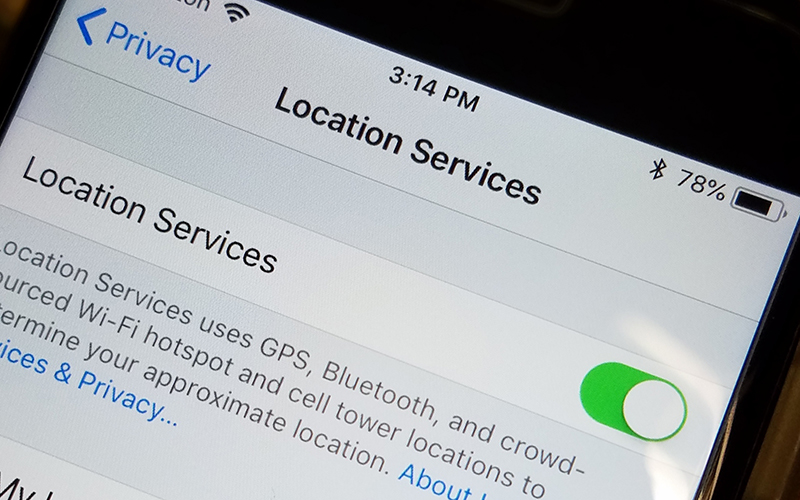
The U.S. Supreme Court decided several cases that resonated with conservatives and liberals. Clockwise, from top left: A class teaches people about the ins and outs of immigrant travel outside the country; anti-abortion activist Cathy Herrod hails a decision on pregnancy centers; an immigrant-detention center in Eloy and supporters of Masterpiece Cakeshop baker Jack Phillips outside the Supreme Court in Washington, D.C. (Photos by staff/Cronkite News)
Anti-Defamation League review: 6 Supreme Court cases that delight conservatives, dismay liberals
By Rebecca Spiess/ Cronkite News |
PHOENIX – The U.S. Supreme Court this year decided some of the most divisive cases in America, from detained immigrants to minority-voter rights to anti-abortion pregnancy centers. The rulings bolstered conservatives and dismayed liberals, according to law experts speaking in Phoenix.
Lawyers and legal scholars from the Anti-Defamation League, a group fighting anti-Semitism and civil rights violations, painted a dismal picture of court opinions they said trampled on the rights of underserved groups, including Muslims, immigrants, racial minorities and gays, according to an annual Supreme Court review sponsored by the league.
But conservatives likely appreciated court opinions that supported a travel ban to stem immigration, asserted the religious rights of a Colorado bakery owner to refuse to make a wedding cake for a gay couple and decided anti-abortion pregnancy centers in California didn’t have to provide information on abortion, panel members said.
“I guess the bottom line is, if you’re conservative, this is a time to celebrate. This is what conservatives wanted to see with regard for the Supreme Court for a long time,” Erwin Chemerinsky, the law-school dean at the University of California, Berkeley, said during the session, which was live-streamed from Philadelphia.
“And if you’re liberal, maybe the best to hope for is that the Supreme Court will continue to take fewer and fewer cases.”
This year, the Supreme Court decided 59 cases, Chemerinsky said, “the fewest number of cases of signed opinions since 1864.”
Here are six of the reviewed cases that reverberated in Arizona, and around the world:
Travel ban: Trump v. Hawaii, June 26, 2018
The impact: President Donald Trump restricted immigration from six majority-Muslim countries. The Supreme Court ruled 5-4 that the president had the authority to enforce the ban and that the law was not based on religious discrimination.
The history: First proposed in September 2017, the case arose from the Trump administration’s third attempt to ban travel from a list of countries. A lower court in Hawaii affirmed an injunction put in place by a district court.
“The third version of the travel ban was the one that was most sanitized,” Frederick Lawrence, chief executive of the Phi Beta Kappa honor society, said during the discussion. “It was not all Muslim-majority countries and not only Muslim-majority countries.”
The newest restrictions extended to Somalia, Iran, Libya, Syria, Yemen and North Korea.
The ban was challenged in lower courts on two grounds: the authority of the executive branch and the First Amendment guaranteeing freedom of religion.
Opponents called the travel ban discriminatory on religious grounds.
The decision: The Supreme Court ruled 5-4 to reverse the lower court’s injunction, upholding the travel ban. The court argued the Immigration and Nationality Act gives the president the discretion to enforce the travel ban based on concerns about national security.
“There is fairly broad consensus, even though some celebrate, some wince right now,” Lawrence said in regard to the president’s power. “There is broad federal authority given to the executive branch with respect to immigration.”
The court also rejected claims of anti-Muslim bias.
“The majority looked at the face of the travel ban and said, ‘There’s nothing in there about Muslims,'” Lawrence said, referring to the text of the ban.
Justice Sonia Sotomayor dissented, writing that the ban is a policy “first advertised openly and unequivocally as a ‘total and complete shutdown of Muslims entering the United States'” – echoing the words of then-candidate Donald Trump in December 2015.
Supporters of the travel ban, including Arizona Rep. Paul Gosar, R-Prescott, said the Supreme Court’s decision keeps terrorism at bay.
“None of these countries really have an organized central government that can actually discern who’s good, who’s bad, who doesn’t meet the requirements,” he said in an interview with Cronkite News in June.
Related Story: A 17-year-old immigrant says the travel ban traps her relatives in Somalia.

Immigrant detentions: Jennings v. Rodriguez, Feb. 27, 2018
The impact: Opponents challenged detention periods that lasted months or even years for some immigrants awaiting decisions whether they would be deported or allowed to remain in the U.S. The Supreme Court affirmed 5-3 that no U.S. immigration statute requires regular bond hearings for detained immigrants.
The history: The case involved a challenge to the government practice of detaining immigrants facing deportation for months or years without due process.
Alejandro Rodriguez, who filed the challenge claiming he was entitled to a bond hearing during his detention, was a Mexican citizen who had been a lawful permanent resident in the U.S. since 1987.
After an alleged drug offense and vehicle theft, Rodriguez was put into deportation proceedings in 2004. He appealed lower decisions ordering his mandatory removal. In 2007, while still litigating his removal proceedings, he asked for a bond hearing to determine whether his detention was still justified.
In 2010, a lower court decided the government must provide individual bond hearings to assess whether an immigrant is a flight risk when detention exceeds six months and every six months while they are detained.
The decision: The Supreme Court, in a 5-3 vote, reversed the lower court ruling, writing that no part of U.S. immigration statute Title 8 requires regular bond hearings during the course of an immigrant’s detention.
“All parties appear to agree that the text of these provisions, when read most naturally, does not give detained aliens the right to periodic bond hearings during the course of their detention,” the Supreme Court wrote.
Most of the immigrants that fell under the category Rodriguez represented were detained for an average of one year, according to Justice Stephen Breyer’s dissent.
“The Government has held all the members of the groups before us in confinement for many months, sometimes for years, while it looks into or contests their claims,” Justice Breyer wrote in his dissent, adding that “ultimately many” win their claims.
“It is essentially unbridled authority for the executive branch in this area,” Frederick Lawrence, chief executive of the Phi Beta Kappa honor society, said in the Anti-Defamation review.

Wedding cakes and gay rights: Masterpiece Cakeshop v. Colorado Civil Rights Commission, June 4, 2018
The impact: In 2012, a bakery owner refused to personally design a wedding cake for a gay couple. The Supreme Court, ruling 7-2, reversed a Colorado Civil Rights Commission opinion, saying that the commission members showed “clear and impermissible hostility” toward the baker and his religious views while they were deciding the case.
The history: Jack Phillips, owner of Masterpiece Cakeshop in Lakewood, Colo., said creating a cake celebrating a gay couple’s wedding would conflict with his deeply held religious beliefs. He argued cake-making, as an art of personal expression, is protected under the First Amendment.
“Though I serve everyone who comes into my shop, like many other creative professionals, I don’t create custom designs for events or messages that conflict with my conscience,” Phillips said at a news conference after oral arguments at the Supreme Court.
The couple, Charlie Craig and Dave Mullins, married in Massachusetts because it was still illegal for gay couples to marry in Colorado at the time.
“We brought this case because no one should have to face the shame, embarrassment and humiliation of being told, ‘We don’t serve your kind here,'” the couple said in a statement, according to Fox News.
Phillips based part of his decision to refuse service on the fact that the marriage was against the law. However, the Colorado Civil Rights Commission decided that refusing service nonetheless violated the state’s anti-discrimination laws.
One commissioner said “freedom of religion and religion has been used to justify all kinds of discrimination through history, whether it be slavery, whether it be the Holocaust.”
Other statements included commissioners saying religion should “not be carried into the public sphere or commercial domain.”
The decision: The Supreme Court ruled 7-2 in favor of the shop owner, saying the Colorado commission was clearly hostile to his religious beliefs in their public statements; therefore, the commission’s ruling was not neutral.
“The only reason the Commission seemed to supply for its discrimination was that it found Mr. Phillips’s religious beliefs ‘offensive,'” Gorsuch wrote, concurring with the majority. “That kind of judgmental dismissal of a sincerely held religious belief is, of course, antithetical to the First Amendment.”
Erwin Chemerinsky, the dean of the University of California, Berkeley, law school, questioned the court’s criteria for religious hostility, citing the different outcome in the travel ban case.
“I find it striking to compare the minimal evidence of religious hostility in this case with the very great evidence of religious hostility in the travel case, which the court then upheld,” Chemerinsky said. “There’s always a tension between liberty and equality.
“Our society has made the choice for over a half century that equality is more important than the freedom to discriminate. But Justice (Clarence) Thomas and Gorsuch are saying that’s wrong, there should be a freedom to discriminate. The court didn’t resolve the underlying issues, and I’m very worried for the future.”
Related Story: Both sides see hope for the future in the court’s decision.

Unlicensed pregnancy centers: NIFLA v. Becerra, June 26, 2018
The impact: Crisis pregnancy centers , or anti-abortion clinics, in California challenged a law requiring them to post notices at clinics indicating how women can access other prenatal care, including abortion, as well as disclosing whether the clinic is licensed by the state. The Supreme Court ruled 5-4 that the disclosures violated the clinics’ First Amendment rights.
The history: The law required notices to be place at California’s 200 or so crisis pregnancy centers. The notices would give women information on how to access family planning services, prenatal care and abortions.
According to the text of the law, unlicensed centers had to provide a disclaimer and every center was to display a notice with specific wording: “California has public programs that provide immediate free or low-cost access to comprehensive family planning services (including all FDA-approved methods of contraception), prenatal care, and abortion for eligible women. To determine whether you qualify, contact the county social services office at (insert the telephone number).”
The 2015 law was passed after California lawmakers and activists became alarmed about the rise of crisis pregnancy centers in the state and allegations they were spreading false information. The centers said they were being unfairly targeted by the state and forced to advocate for services they did not support.
The decision: The Supreme Court ruled 5-4, saying that the act requiring the disclosures violated the First Amendment. Majority justices argued that the notice altered the “content” of the speech of the anti-abortion clinics.
The act “imposes an unduly burdensome disclosure requirement that will chill their protected speech. Taking all these circumstances together, we conclude that the unlicensed notice is unjustified and unduly burdensome,” the majority wrote.
They also argued there were other ways the state could inform women of their options without requiring crisis pregnancy centers to do so. Regarding the disclosure of licenses, the majority contended there was no evidence showing that women did not already know that certain facilities are “staffed by unlicensed medical professionals.”
In his dissent, Justice Thomas Breyer said women need to have information about all options available to them early in their pregnancy.
“The legislature heard that information-related delays in qualified healthcare negatively affect women seeking to terminate their pregnancies as well as women carrying their pregnancies to term, with delays in qualified prenatal care causing life-long health problems for infants,” Breyer wrote.
Panelists at the Anti-Defamation League also criticized the ruling.
“No facility is required to provide contraceptive abortion or referrals. They just have to post this notice,” said Erwin Chemerinsky, the dean of the University of California, Berkeley, law school. Crisis pregnancy centers, he said, “often provide women inaccurate information, including about the health risks of abortion.”
He also referenced other disclosure laws, including restaurants posting the caloric value of foods, workplaces informing employees of their rights and bars with disclosures about the consequences of alcohol consumption.
“There’s countless laws that require disclosures in innumerable contexts,” Chemerinsky said. “I think the only way to understand what the Supreme Court did in this case, in light of other laws upholding regulation of professional speech, is seemingly based on the conservative majority’s hostility for abortion rights.”
Related Story: Anti-abortion advocates hail pregnancy-center decision as free speech win

Cellphone search warrants: Carpenter v. United States, June 22, 2018
The impact: In 2010, location-tracking data from a cellphone were used as evidence in a robbery conviction. The data were obtained without a probable-cause warrant, which the Supreme Court ruled 5-4 was a violation of the Fourth Amendment’s protections against unreasonable searches and seizures.

Accounting for “seismic shifts in digital technology” capable of tracking people’s locations, the Supreme Court ruled that using cellphone-location data without a search warrant is unconstitutional. (Photo by Conrad Romero/Cronkite News)
The history: In 2013, more than 100 days’ worth of Timothy Carpenter’s cellphone records were part of the evidence used to convict him for a series of robberies at Radio Shack and T-Mobile stores in Michigan and Ohio in 2010. The court convicted and sentenced Carpenter to 116 years in prison. An appeals court held that no warrant is required to search cellphone location records, saying the collected data was not personal or specific enough for protection.
“The Supreme Court has long recognized a distinction between the content of a communication and the information necessary to convey it,” the Sixth Circuit Court of Appeals wrote.
“The government’s position was that this was in fact not a search,” said Frederick Lawrence, chief executive of the Phi Beta Kappa honor society. “These are public records.”
The decision: The Supreme Court ruled 5-4 that using cellphone-location data without a probable-cause search warrant is unconstitutional. They argued that a person does not automatically lose his or her reasonable expectation of privacy by using such technology.
“The Government’s position fails to contend with the seismic shifts in digital technology that made possible the tracking of not only Carpenter’s location but also everyone else’s, not for a short period but for years and years,” the opinion said.
“The Court’s stark departure from relevant Fourth Amendment precedents and principles is, in my submission, unnecessary and incorrect,” Justice Anthony Kennedy wrote in dissent.
The Anti-Defamation League panel approved the Court’s decision, but Lawrence said there were “clouds on the horizon,” referring to Justice Gorsuch’s dissent.
He said Gorsuch’s idea of privacy was very material, referring to a person’s physical space and physical possessions. Lawrence worried that this “physicality” of an expectation of privacy would give the government more leeway to search cellphones and other personal technology.

Purging voter rolls: Husted v. A. Philip Randolph Institute, June 11, 2018
The impact: The Supreme Court upheld an Ohio law that cancels residents’ voter registrations after four years of non-voting and failing to return a mailed card. The Court ruled 5-4 that the law does not violate the National Voter Registration Act.
Purges: Voter Registration in Cincinnati from News21.
The history: An Ohio law forced voters who missed a federal election to confirm home addresses within four years or face the cancellation of his or her voting registration. To confirm an address, a voter would receive a card in the mail to be forwarded. If the card was not returned within four years, or if the individual did not vote during that time, his or her voter registration would be cancelled. According to the ADL, many in the process did not see or understand the notice they received in the mail and didn’t realize their registration would be cancelled.
Dahlia Lithwick, a senior editor at Slate magazine who was on the ADL panel, said the measure unfairly targeted “the very poor, students and the elderly.” The Ohio law was meant to follow the federal voting registration law, which states in subsection (d) that not only “are states allowed to remove registrants who satisfy these requirements, but federal law makes this removal mandatory.”
The decision: The Supreme Court voted 5-4 in favor of Ohio, reversing a lower court’s decision. They reasoned that removing voters based on a change in residence did not violate federal law.
Justice Sonia Sotomayor dissented, writing that the Court’s opinion “entirely ignores the history of voter suppression… and upholds a program that appears to further the very disenfranchisement of minostirty and low-income voters that Congress set out to eradicate.”

Leave a Comment
[fbcomments]